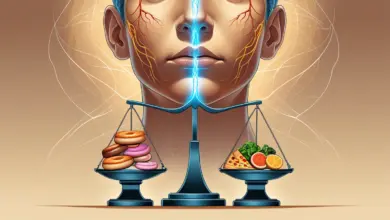Testosterone for Women and Weight Loss: What You Need to Know

When people think about testosterone, they typically associate it with men. But this hormone plays an important role in women’s health too. Beyond its influence on mood and energy, testosterone can impact metabolism, muscle mass, and yes, even weight loss. For women struggling to maintain a healthy weight, understanding the connection between testosterone and fat loss may provide helpful insights. In this post, we’ll explore how testosterone affects women’s bodies and why it matters for reaching weight loss goals.
Understanding Testosterone and Its Role in Women’s Health
Let’s clear up a common misconception—testosterone isn’t just a “male hormone.” It has a critical role in many aspects of women’s health, including muscle growth, energy, mood regulation, and even weight management. Understanding how testosterone works can give valuable insight into why it matters for women aiming to lose weight and maintain overall health.
What is Testosterone?
Testosterone is a type of androgen, a group of hormones that influence the development of male traits, but it plays a key role in the female endocrine system too. For women, testosterone is produced in small amounts by the ovaries and adrenal glands.
This hormone supports various bodily functions, such as:
- Maintaining muscle strength and bone density.
- Promoting libido and overall sexual health.
- Supporting the body’s production of red blood cells.
- Regulating mood, energy, and metabolism.
Low testosterone levels in women can lead to fatigue, reduced muscle mass, and even difficulty in reducing body fat—a connection directly tied to weight loss challenges.
Testosterone Levels in Women
Just like most hormones, testosterone levels aren’t static—they fluctuate due to age, menopause, and even health conditions. Understanding what’s considered normal can give clarity.
Here’s a general guide to testosterone levels measured in nanograms per deciliter (ng/dL):
- Normal Range: 15-70 ng/dL for women.
- Young Adult Women: Higher levels typically found in women during their 20s.
- Post-Menopausal Women: Levels tend to decrease, often falling below the lower end of the range. Source
In women, levels naturally decline with age, starting as early as their late 20s. By the time menopause occurs, many experience significantly reduced testosterone levels. This decline can make it harder to build and maintain muscle, a crucial factor in boosting metabolism and shedding extra pounds. Learn more here.
For those seeking to address symptoms tied to low testosterone, therapies or lifestyle modifications may be helpful, though it’s important to consult with a healthcare provider to determine the best approach. Read how testosterone therapy can help.

Photo by Mikhail Nilov
The Connection Between Testosterone and Weight Loss
Testosterone plays a significant role in how our bodies manage energy, build muscle, and burn calories. While it’s often labeled as a “male hormone,” testosterone is equally important for women, particularly when it comes to weight management. For women aiming to lose weight, understanding how testosterone shapes these processes can provide valuable insight into their fitness journey.
Testosterone’s Impact on Metabolism
Metabolism isn’t just about burning calories; it’s the engine that drives every chemical process in the body, including how you store or lose weight. Testosterone plays a vital part in dialing up that engine. It enhances the body’s ability to use glucose, reduces fat accumulation, and increases energy levels, which many women might struggle with.
When testosterone levels are balanced, it supports a healthier metabolic rate. This means your body can burn calories more efficiently, even during rest. Research shows that low testosterone can slow metabolism, leading to increased fat storage and a higher likelihood of weight gain. A sluggish metabolism can make weight loss feel like an uphill battle for women. Explore the evidence-backed connection between testosterone and weight loss here.
For women experiencing symptoms like fatigue or unintentional weight gain, addressing testosterone levels might uncover new avenues for improving metabolic health and achieving weight loss goals.

Photo by Andres Ayrton.
Role of Testosterone in Muscle Mass Maintenance
Muscle mass is like the unsung hero of weight management—it’s the tissue that burns calories even when you’re not moving. Think of your muscles as tiny factories; the more factories you have, the more “workers” are burning energy around the clock. Testosterone is critical in helping the body build and maintain these factories.
For women, preserving muscle mass can be challenging due to naturally lower testosterone levels compared to men. Low muscle mass often leads to a slower metabolism and difficulty shedding pounds. Testosterone stimulates protein synthesis, which is essential for muscle repair and growth, ensuring your body stays strong and fat-burning efficient.
Numerous studies have highlighted how maintaining or supplementing testosterone can improve body composition by promoting lean mass retention while eliminating fat tissue. Here’s a detailed look at how testosterone supports muscle health and weight loss. Women with optimized testosterone levels are more likely to maintain lean muscle, especially as they age, when muscle loss becomes more prominent.
Additionally, strength training and resistance exercises amplify these benefits. When paired with balanced testosterone, these activities not only maintain muscle but also improve calorie-burning capacity, making weight management much more achievable for women.
Testosterone Therapy for Women
If you’ve been hearing more about testosterone therapy for women, you might wonder why it’s gaining attention. Testosterone Replacement Therapy (TRT) isn’t solely a topic for men anymore. For women, testosterone therapy has the potential to improve energy levels, body composition, and even support weight loss goals. However, like any medical treatment, there are considerations to weigh.
Benefits of Testosterone Therapy
Testosterone therapy can offer a range of benefits for women, particularly those experiencing symptoms of low testosterone levels. If you’ve struggled with low energy, increasing body fat, or reduced muscle strength, TRT might be a path worth exploring.
Some key benefits include:
- Improved Body Composition: Balanced testosterone levels can enhance muscle tone while reducing fat mass. For women aiming to lose weight, this combination can help trim inches and boost basal metabolic rates. Learn more about the benefits.
- Enhanced Energy and Stamina: Do you often feel drained or sluggish? Testosterone helps regulate energy output, supporting a more active lifestyle. Increased energy levels make it easier to stay consistent with exercise routines.
- Preservation of Muscle Mass: Muscle loss naturally occurs with age, especially post-menopause, but testosterone therapy can counteract this. Stronger muscles mean more calories burned—even at rest.
Women experiencing symptoms tied to decreased testosterone, such as unexplained weight gain or fatigue, should discuss options with a healthcare provider. Custom plans might include low-dose testosterone therapies designed for safety and effectiveness.

Photo by Dmitriy Ganin.
Risks and Considerations of Testosterone Therapy
While testosterone therapy has promising benefits, it’s essential to weigh the potential risks and understand the importance of safe, appropriately dosed treatments. Like most medical therapies, TRT isn’t without its downsides.
Here are some considerations:
- Possible Side Effects: Some women may experience acne, body hair growth, or mood fluctuations due to testosterone therapy. In rare cases, higher doses can lead to masculinization symptoms like voice deepening. Explore research on risks.
- Heart and Liver Concerns: High doses or improper use of testosterone supplements can stress the cardiovascular system and liver health. Monitoring by a medical professional helps minimize these risks.
- Long-Term Uncertainty: While evidence supports the short-term safety of low-dose TRT for women, there’s limited data on potential long-term effects. This makes personalized treatment plans and regular check-ins critical.
It’s worth noting that correct dosing and monitoring are essential to avoid these risks. Testosterone therapy should only be pursued under medical guidance from a licensed healthcare professional. Balance and moderation are key when introducing hormonal treatments into the body. Find out more about safety concerns.
Successful Weight Loss Strategies Incorporating Testosterone
Testosterone may be better known as a “male hormone,” but it’s vital for women’s health, particularly for energy and weight control. When combined with the right daily choices, testosterone therapy can amplify efforts to lose weight, feel stronger, and improve overall well-being. Here, we’ll explore targeted dietary adjustments and exercise regimens that optimize testosterone’s weight-loss benefits for women.
Dietary Approaches
The foundation of any successful weight loss plan lies in nutrition, and when testosterone therapy is involved, your diet becomes even more critical. A balanced approach to eating not only supports metabolic health but also works hand-in-hand with testosterone to promote fat loss and muscle retention. What should you focus on?
- Prioritize Protein: Protein is the building block of muscle. Consuming it in adequate amounts supports the muscle-maintaining benefits of testosterone. Make lean options like chicken, fish, tofu, or beans your go-to choices.
- Healthy Fats for Hormone Support: Testosterone production is directly influenced by healthy fats. Avocados, nuts, seeds, and olive oil are excellent additions to your meals. Also, omega-3 fatty acids (found in fish like salmon) have anti-inflammatory benefits that complement hormone therapy.
- Reduce Processed Sugars and Carbs: Excess sugar and refined carbs can derail testosterone’s effectiveness by encouraging fat accumulation. Instead, opt for complex carbs like brown rice, quinoa, and vegetables for sustained energy.
- Stay Hydrated: Dehydration can impair metabolism and make you feel sluggish. Always aim for eight glasses of water daily.
Research underpins the importance of combining sound nutritional strategies with hormone therapy for effective weight loss. Learn more about how nutrition supports hormonal health during therapy.

Photo by Andres Ayrton.
Exercise Regimens
Physical activity is essential for weight loss, but when paired with testosterone therapy, it serves a dual purpose: boosting metabolism while building fat-burning muscle mass. The type of exercise you choose can directly impact your results.
- Strength Training: Lifting weights or engaging in resistance exercises is one of the fastest ways to promote lean muscle growth. Testimonial reports and studies affirm lifting’s effectiveness in women using testosterone therapy for weight management. Start with light to moderate weights and gradually progress.
- High-Intensity Interval Training (HIIT): HIIT workouts combine short bursts of intense exercises with rest, amplifying fat burn while preserving muscle. For busy individuals, a 20-minute session can deliver results comparable to longer cardio workouts.
- Cardio with a Purpose: While running or brisk walking helps burn calories, combining cardio with strength training maximizes fat loss and can elevate testosterone efficiency. Just 3-4 sessions weekly can yield noticeable results.
- Core Rehabilitation: Enhanced testosterone levels work wonders for fat loss, but don’t forget exercises targeting stability, like planks or yoga stretches. These improve posture and help reduce stress—a factor that impacts hormone balance.
When you exercise, think of it as fueling your body’s engine. Paired with testosterone, movement becomes your biggest ally. Explore findings on exercise combinations and hormone therapy benefits.
Scientific Evidence Supporting Testosterone for Weight Loss
The connection between testosterone and weight loss in women is gaining traction in scientific research. While testosterone has often been associated with men, studies reveal it plays an indispensable role in women’s fat regulation, muscle preservation, and metabolic health. This section delves into the latest findings that back up these insights.
Research Findings: Highlight key findings from reputable studies
Emerging research highlights the significant role testosterone plays in helping manage body weight, particularly for women. Let’s look at some key findings:
- Fat Distribution and Visceral Fat: Testosterone has been linked to reductions in visceral fat—the “dangerous” fat stored around key internal organs. A 2010 study explored the relationship between bioavailable testosterone and fat distribution in middle-aged women. It found that higher levels of testosterone correlated with lower amounts of visceral fat, leading to healthier body compositions. Explore the full study.
- Muscle Versus Fat Mass: One of the most cited benefits of testosterone in women is its ability to promote lean muscle mass while reducing fat storage. A 2014 study demonstrated that testosterone therapy increases lean body mass (LBM), reduces fat mass, and contributes to sustained weight loss over time. These outcomes emphasize the pivotal role of the hormone in weight regulation. Learn more about this finding.
- Testosterone and Long-Term Weight Loss: Interestingly, a recent study highlighted the sex-differential impacts of testosterone in females and males during weight loss. Women who underwent sustained weight management interventions showed positive correlations between testosterone levels and fat reduction, emphasizing its role in driving body composition changes. Read more in this study.
Key Contributions of Testosterone:
- Metabolic Efficiency: Testosterone aids in better calorie usage by minimizing fat storage while utilizing energy more effectively.
- Muscle Preservation: Without sufficient testosterone, the risk of muscle loss increases, slowing down metabolism.
- Waist Circumference Reduction: Testosterone therapy studies consistently show decreases in waist circumference, a known marker of obesity-related health risks.

Photo by Andres Ayrton
Emerging evidence underscores testosterone’s multi-faceted role in supporting women’s weight loss. These findings could pave the way for more inclusive approaches to weight management strategies for women, addressing hormonal imbalances to amplify success.
Key Takeaways
Understanding the link between testosterone and weight loss for women provides a new lens through which to view health and fitness. Here are the main insights:
Testosterone’s Role in Women’s Health
- Testosterone isn’t just a male hormone; it plays a key role in muscle growth, mood enhancement, and metabolism regulation for women.
- Balanced testosterone levels promote muscle retention and fat reduction, both of which are essential for effective weight management.
Impact on Weight Loss
- Optimizing testosterone levels can help boost a sluggish metabolism, allowing the body to burn calories more efficiently.
- This hormone aids in maintaining muscle mass, which is crucial for calorie expenditure even at rest. Learn how testosterone impacts metabolic function.
Benefits of Testosterone Therapy
- Women experiencing symptoms of low testosterone—like fatigue or weight gain—might find relief and improved weight loss results through therapy.
- Testosterone therapy is linked to increased energy, lean muscle gain, and fat loss. Not sure if therapy is for you? Read more about its benefits here.
Risks and Considerations
- While testosterone therapy can improve body composition, improper dosages or unsupervised treatments can lead to side effects. Symptoms might include acne or mood changes. Learn more about safe, low-dose options.
Holistic Approaches for Success
- Combining testosterone optimization with strength training and a nutrient-rich diet amplifies weight loss results.
- Nutritional choices like prioritizing protein and healthy fats can complement the hormone’s effects, ensuring sustainable progress.
Testosterone’s multifaceted role can unlock untapped potential in women’s weight loss strategies when managed carefully. From supporting muscle health to supercharging metabolism, it’s a hormone worth understanding. For more insights on its impact, check out this guide.
Conclusion
Testosterone plays an important role in how women manage weight, energy, and overall health. From boosting metabolism to preserving muscle mass, balanced levels can make weight loss more effective and sustainable. For those struggling with symptoms like fatigue or stubborn weight gain, low testosterone may be a factor worth investigating.
It’s vital to work with your healthcare provider to explore options, whether it’s lifestyle changes, strength training, or therapy. Optimizing your testosterone levels could unlock progress toward your health goals, empowering you to feel and perform at your best. If you’re considering testosterone therapy, professional guidance ensures safe and effective outcomes.





